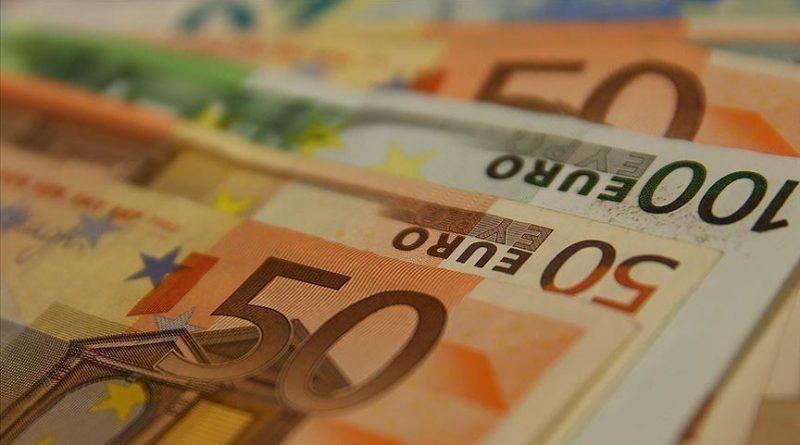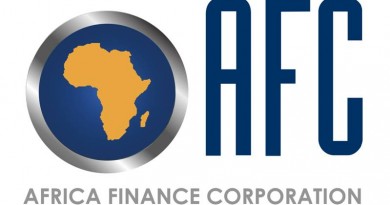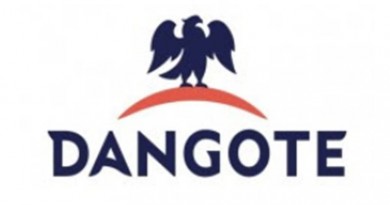The Euro falls below US Dollar for first time in nearly 20 years as uncertainty mounts
The Euro has fallen below the dollar for the first time in nearly 20 years as the war in Ukraine pushes the single currency down coupled with a hawkish U.S. Federal Reserve and growing concern about rising recession risks in the euro area continued to batter the currency.
The latest slide came after another hot set of U.S. inflation data. Heightened global uncertainty and an aggressive Fed monetary policy stance meanwhile have benefited the safe-haven US dollar.
A single euro bought $0.998 on the foreign exchange market at 12:45 GMT, down by 0.4% in the day’s trading. Fears that Russia may restrict Europe’s supplies of energy have increased the chances of recession in the euro area.
The European Central Bank has lagged other central banks in raising rates, further weakening the euro. Currencies tend to rise when the relevant central bank increases interest rates, as international investors eye a larger return for holding assets priced in that currency.
The dollar has also been strong in recent months, buoyed by the US central bank raising interest rates, and investors seeking the safe haven of dollar assets in times of global turmoil.
A weakening currency will make imports more expensive for eurozone countries, especially goods priced in dollars such as crude oil. That could contribute to even higher inflation in the eurozone, which is already running at 8.6% for June.
A spokesperson for the ECB said it does not “target a particular exchange rate. However we are always attentive to the impact of the exchange rate on inflation, in line with our mandate for price stability.” The bank is expected to start increasing interest rates next week.
The euro has fallen almost 12% against the dollar since the start of the year. The single currency has been worth more than the dollar for most of its history. It lagged below the dollar in the years following the currency’s launch in 1999, but the last time it traded below the dollar was December 2002 – less than a year after euro notes and coins were introduced for the first time.
“Gas rationing, stagflation, an expected recession, they are all good reasons to be bearish on the euro,” said Stuart Cole, head macro economist at Equiti Capital in London before the euro crossed that threshold.
He add that these factors will make it harder for the European Central Bank to hike interest rates, further widening the interest-rate differential with the United States.
Since becoming available freely in 1999, the single currency has spent very little time below parity. In fact, the last time it did so was between 1999 and 2002, when it sank to a record low of $0.82 in October 2000. Within its relatively short two-decade history, the euro is the second most sought after cu ..
Here’s an outline of the significance of the move.
WHAT’S THE BIG DEAL?
For starters, a drop below the $1 level is rare.Advertisement · Scroll to continue
Since its birth in 1999, the single currency has spent very little time below parity. In fact, the previous time it did so was between 1999 and 2002, when it sank to a record low of $0.82 in October 2000. Euro banknotes and coins were only introduced on Jan. 1, 2002, with the currency only existing before that day as a unit of account for settling cross-border transactions.
Within its relatively short two-decade history, the euro is the second-most sought-after currency in global currency reserves and daily turnover in the euro/dollar is the highest among currencies in the global $6.6 trillion market per day.
BUT EVERYTHING’S WEAK VERSUS THE DOLLAR
True. The likes of sterling and the yen have also slid this year, partly because of more aggressive U.S. rate hikes have boosted the dollar’s appeal and also as global recession fears have sent investors flocking to the safe-haven dollar.Advertisement · Scroll to continue
The European Central Bank is expected to start hiking rates at its July 21 meeting. The Federal Reserve hiked rates by 75 bps in June.
Growing fears that soaring European gas prices makes the euro area more susceptible to recession risks also explain why the euro is being hit hard now.
Some global banks are forecasting a recession for the euro area as soon as the third quarter.
WILL THE EURO FALL MORE?
Some economists think so. Nomura has a short-term target of $0.95.Advertisement · Scroll to continue
Analysts say that until the economic outlook improves the euro will remain in the doldrums. Even if the ECB hikes rates, the Fed is hiking by more, luring cash into the United States. The euro could also be hurt by fragmentation risks, where weaker states’ borrowing costs rise by more than wealthier peers.
One favourable factor for the euro is that shorting the currency is already a popular trade in currency markets right now and bearish positioning is approaching historical levels. That might prevent the euro from falling sharply.
WHAT DOES THIS MEAN FOR THE ECB?
A big headache. Letting the currency fall would push up already record high inflation, raising the risk of price growth becoming entrenched at a rate well above the ECB’s target of 2%.
But fighting back against 20-year lows for the euro would require more rapid rate hikes, which could add to the misery for an economy already facing a possible recession. read more
Studies frequently cited by the ECB suggest that a 1% depreciation of the exchange rate raises inflation by 0.1% over one year and by up to 0.25% over three years.
IS INTERVENTION COMING?
The ECB has so far played down euro weakness, arguing that it has no exchange rate target, even if the currency does matter as part of the wider inflation calculations
The euro has slumped almost 12% against the dollar so far this year. But on a trade-weighted basis — against its trade partners’ currencies — the euro is down only 3.6% .
To prop up the euro, the ECB could signal more aggressive tightening, including a 50-basis-point rate hike in September, and further moves in October and December.
Analysts reckon a more hawkish stance is unlikely given the deteriorating growth outlook.




